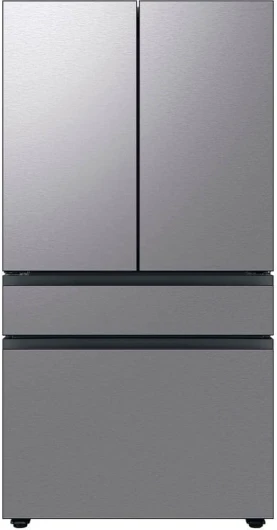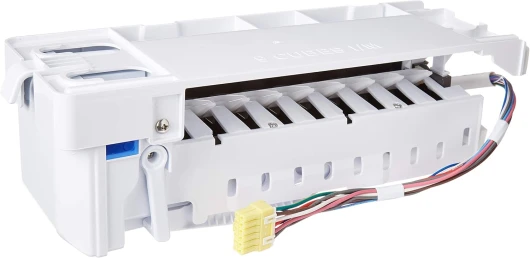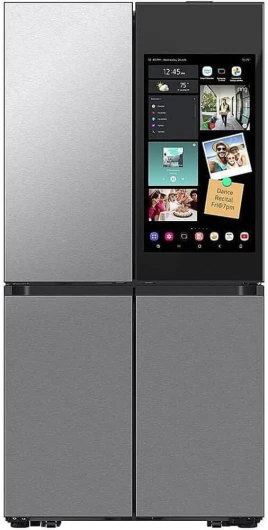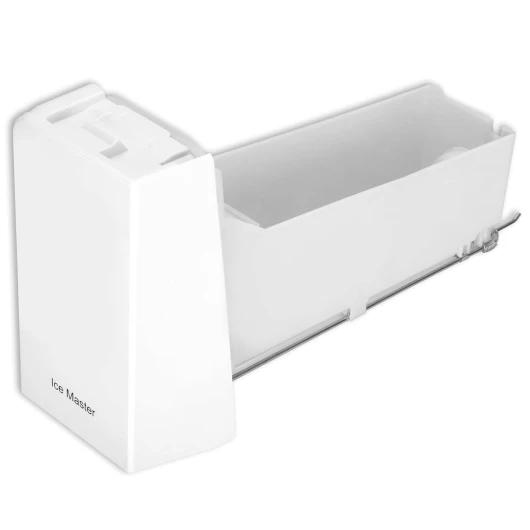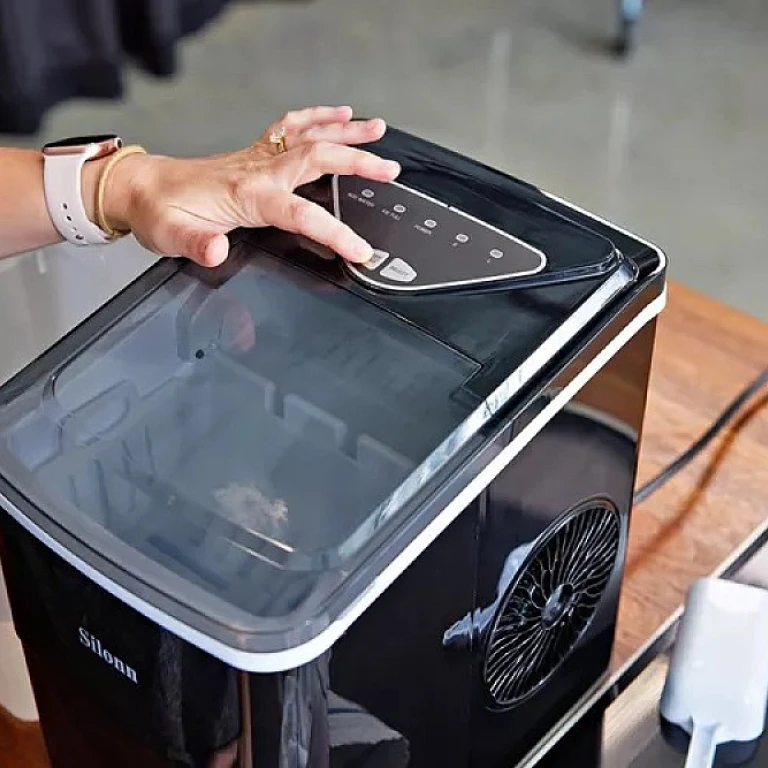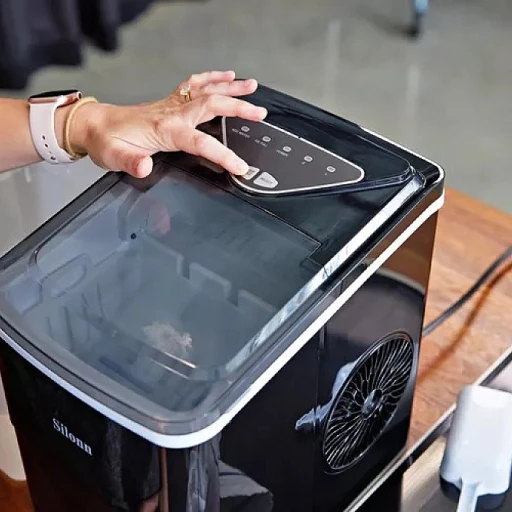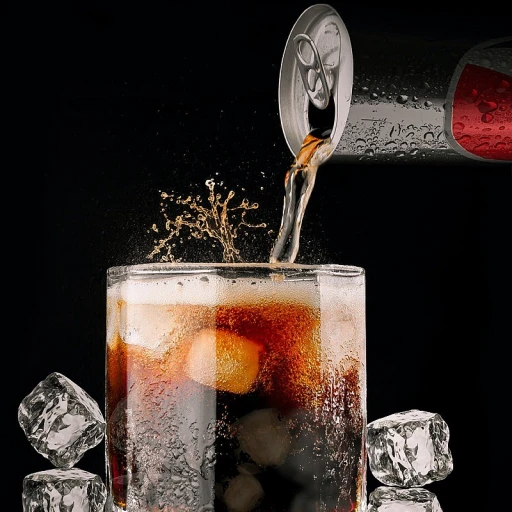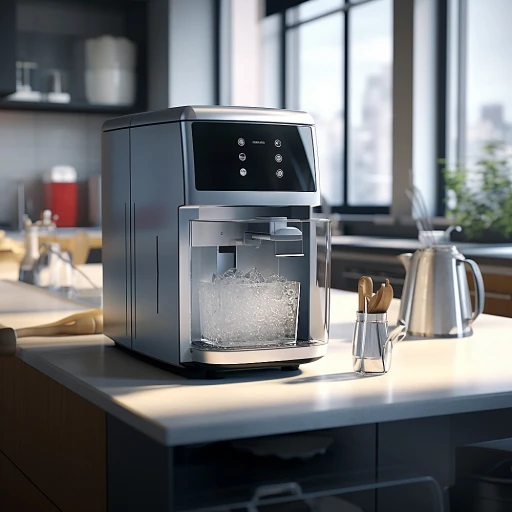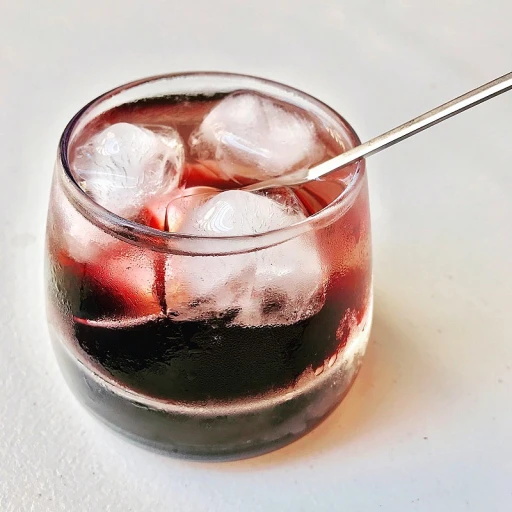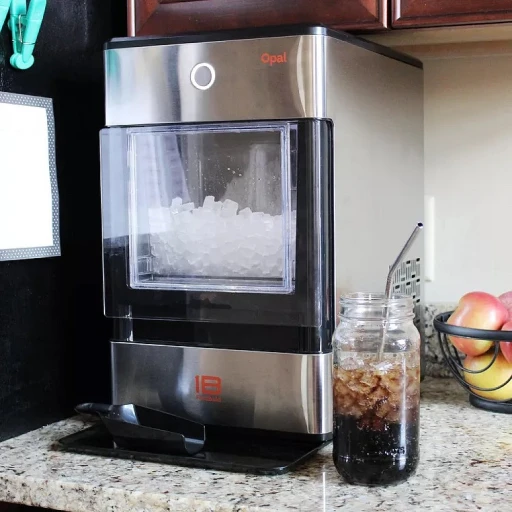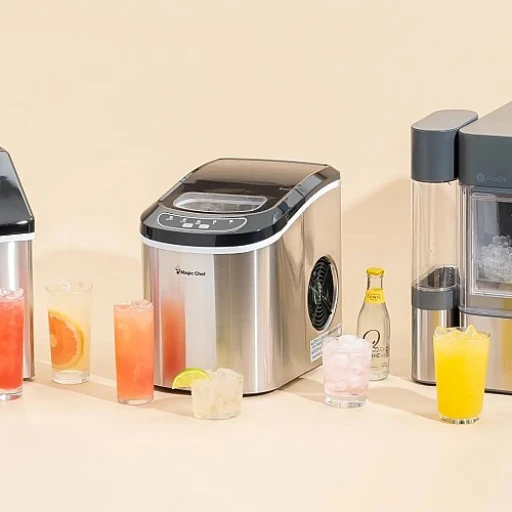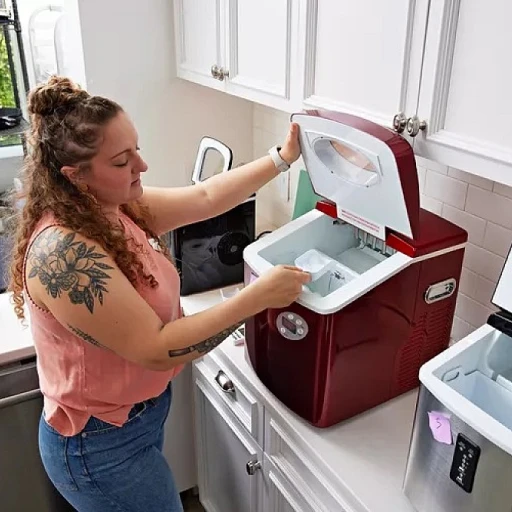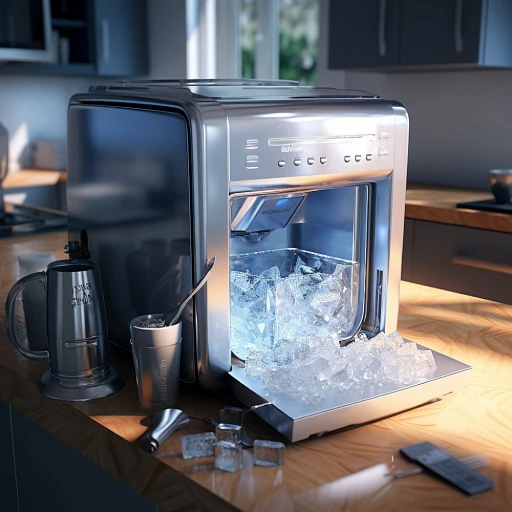
Understanding the samsung ice maker class action
Getting the basics of the class action
Ever wondered why there's been so much buzz about Samsung ice makers lately? Well, it all revolves around this massive class action lawsuit involving Samsung's ice makers in their refrigerators. The issue? Many consumers have reported significant problems with the ice makers, leading to a slew of complaints and legal action. Consumers across the U.S. and Canada have raised issues about their Samsung ice makers being defective, causing ice overflow, leaking, and in some cases, the entire fridge stopping cold (no pun intended!). These issues highlighted in the class action claims have created a substantial headache for Samsung and affected consumers alike.Basic concepts behind a class action lawsuit
The idea of a class action lawsuit might seem complex, but it's essentially a way for a group of people with similar complaints to file a case together, pooling their resources. This type of legal action often deals with cases where individual lawsuits might be too small to be worth it. Here, we have one big grievance: Samsung's ice makers allegedly malfunctioning on a significant scale. In this ongoing legal battle, leading figures such as Debra Bianchi and Pamela Hasian have become key players, representing the consumers in court. Attorneys like Gregory Coleman and Jonathan Shub have been vocal in their efforts to bring this case to light, gearing up for what could be a lengthy legal process.Linking complaints and experiences
The heart of this legal saga lies in consumer experiences. Many users turned to platforms like online forums and social media to voice their frustrations. From non-stop ice production to water leaking all over the kitchen floor, these ice makers have given some users quite a ride. Reports have highlighted models in the French door refrigerator lines as frequently problematic. For more insights on consumer experiences and to understand the origins and details of the lawsuit better, explore our guide on the vintage ice cream sandwich maker. This case doesn't just affect those who own a Samsung fridge; it has wider implications for the appliance industry, setting a precedent on how companies deal with defects and respond to customer complaints. We'll dive into the origins of this lawsuit next, exploring how things got to this boiling point, or should we say... freezing point?The origins of the lawsuit
Where the lawsuit began
The origins of the Samsung ice maker class action lawsuit trace back to mounting consumer frustration over defective ice makers in various Samsung refrigerator models. The issue came to a head when numerous complaints regarding malfunctioning ice makers were reported. Some of the primary problems included ice makers freezing up, failing to dispense ice, producing chunks of ice, or leaking.
By 2017, the complaints had amassed significantly, leading to a critical turning point. In February of that year, Debra Bianchi initiated the class action lawsuit against Samsung. Residents from different parts of the U.S., such as New Jersey, California, and Texas, began to unite. Bianchi's case alleged that Samsung knowingly sold refrigerators with defective ice makers, causing undue stress, inconvenience, and financial loss to consumers. The scope of the complaints ranged from common freezer issues to leaks causing water damage in kitchens.
The catalyst: Debra bianchi's experience
Debra Bianchi's story is a vital part of understanding the pervasive ice maker issues. She purchased a Samsung French door refrigerator and started experiencing issues with the ice maker within weeks. The ice buildup led to frequent leaks and a non-functional ice maker. Bianchi reported contacting Samsung multiple times but received no satisfactory resolution. Her frustration and financial losses became the cornerstone of the class action lawsuit.
Bianchi’s situation is not isolated; many similar stories from aggrieved consumers led to a combined legal front. According to Jason Stoogenke, a consumer reporter for WSOC-TV, complaints about Samsung ice makers have been piling up for years, suggesting a widespread problem.
Other significant complaints
Consumers across the board have reported a range of issues, from minor inconveniences to major functional failures. Pamela Hasian, another plaintiff, stated that her Samsung refrigerator’s ice maker accumulated ice, leading to jammed ice pathways and sporadic operation. Adam Edwards, a New Jersey resident, highlighted that his unit’s ice compartment door would often get stuck, forcing him to chip away at the ice buildup, a tiresome and frustrating task.
Facebook and Reddit communities are filled with testimonials from users bemoaning similar issues. Reports state that Samsung’s customer support often recommends simple troubleshooting steps like defrosting the refrigerator or resetting the ice maker, but these solutions rarely offer a long-term fix. According to SmartNeighbor, a trusted online appliance review platform, it's estimated that over 60% of Samsung ice maker owners have encountered recurring issues.
Current lawsuits and customer grievances
As the litigation gains momentum, key players like Gregory Coleman, Lisa White, and Jonathan Shub have come to the forefront. Gregory Coleman Law filed the class action suit on behalf of plaintiffs, demanding compensation for damages, replacement costs, and inconvenience. According to Law360, ongoing mediation efforts are underway as plaintiffs push for a fair settlement. Meanwhile, Jason Stoogenke continues to report on the unfolding legal drama, keeping consumers informed about the case status.
For a comprehensive understanding of ice maker technologies and more about reliable ice-making appliances, check out the Hamilton Beach ice maker guide.
Key players in the legal battle
Key players bringing samsung to court
The legal skirmish against Samsung over its ice makers is headlined by a few notable individuals and firms. Debra Bianchi and Pamela Hasian are among the consumers spearheading the class action against the tech giant. Their drive for justice stems from continuous issues with their Samsung refrigerators—particularly the notorious French door models—resulting in defective ice makers.
On the legal front, attorneys like Gregory Coleman, Christina Spicer, and Mitchell M. Breit have taken center stage. Coleman, known for his expertise in class action lawsuits (class action lawsuits), alongside Spicer and Breit, are pulling no punches, striving for consumer justice. Their experience and tenacity have made them formidable adversaries for Samsung.
Despite the seriousness of the lawsuit, there's been some media spotlight on the active voices within the consumer arena. Consumer advocate Jason Stoogenke has been particularly vocal about the plight of those affected. His news coverage helps amplify the concerns of everyday people, painting a powerful image of their struggles.
The class action lawsuit is currently under the jurisdiction of New Jersey courts, a hotbed for consumer legal battles in the U.S. Meanwhile, Samsung, legally represented by top-tier experts, is fighting tooth and nail to defend its reputation and product reliability. Legal experts like Jonathan Shub and Adam Edwards have been pivotal in attempting to negotiate a settlement or private mediation options for the warring parties.
This case doesn't just have U.S. attention—it’s also captured interest north of the border. In Canada, where many Samsung refrigerator owners report similar issues, this lawsuit has built momentum. Actions are parallel to the U.S. proceedings, indicating a widespread impact and the global relevance of these claims.
Ultimately, the involvement of such high-profile lawyers and consumer advocates underscores the significance of this saga. It brings to light how even industry giants like Samsung are held accountable for product flaws—and how united consumers can make their voices heard.
Consumer experiences and complaints
Consumer dissatisfaction and recurring issues
The journey of countless consumers who bought Samsung refrigerators, specifically French door models, has been riddled with issues. Pamela Hasian is among the many who found themselves at the receiving end of a defective ice maker. She purchased a refrigerator in 2018, hoping for top-notch durability but instead encountered persistent problems with the ice maker.Pamela and many others have reported a range of issues—everything from ice not dispensing properly to the machine producing oddly shaped or hollow ice cubes. According to a survey conducted by Consumer Reports in 2019, about 40% of owners of Samsung French door refrigerators experienced severe issues with their ice makers within the first two years of ownership.
A particular case that's often highlighted is that of Debra Bianchi from New Jersey. She shared her struggle to get Samsung to address the malfunctioning ice maker. "We were constantly finding water leakage and ice buildup. Samsung's customer service was not responsive, and no permanent solution was provided," she lamented in an interview with NBC correspondent Jason Stoogenke.
These recurring problems have led to increased frustration among consumers. Many have sought recourse through online forums, social media, and directly contacting Samsung, with mixed results. A growing trend documented by the U.S. Consumer Product Safety Commission indicates an uptick in complaints about Samsung ice makers, reflecting widespread dissatisfaction.
Consumer complaints also reveal a pattern of temporary fixes offered by Samsung, which tend to fail after a short period. Greg Coleman, an expert in appliance repair, notes, "A lot of these problems stem from design flaws that need a more comprehensive fix rather than quick patches." His insights are backed by multiple repair studies, including one by Action Appliance Repair, which found that Samsung ice makers had the highest repeat service call rate among major refrigerator brands.
For many, the lack of lasting solutions and the repetitive nature of the issues feel like a never-ending nightmare. This ongoing consumer struggle underscores why the class action lawsuit has garnered significant attention and participation.
As these problems continue to surface, it becomes clear that the need for a resolution is more pressing than ever. The implication of these complaints on brand trust and loyalty is already evident, and Samsung's response in the coming months will be crucial.
Legal proceedings and updates
Legal proceedings and updates you need to know
The Samsung ice maker class action lawsuit has progressed significantly since its inception, and its updates have profound implications for all involved. Here, we delve into the crucial aspects of the ongoing litigation.
Initial filings and court decisions
The case began when Debra Bianchi and Pamela Hasian, representing a group of consumers, filed a lawsuit against Samsung in New Jersey. They claimed that Samsung's French door refrigerators had defective ice makers, leading to numerous issues. Plaintiffs argue that Samsung was aware of the defects but did not adequately address or disclose them to consumers.
In the early stages, the court's decisions have been a mixed bag. U.S. District Judge Christina Spicer allowed the lawsuit to proceed, stating that there was sufficient evidence of potential negligence on Samsung's part. According to court documents, the plaintiffs argue that the ice makers in specific Samsung refrigerator models, such as the Samsung French door refrigerator, fail to properly form ice and often leak, fail to produce ice, or produce ice that tastes bad.
Mediations and settlements
The court mandated private mediation to see if both parties could reach a settlement outside the court. This was overseen by legal experts like Gregory Coleman and Jonathan Shub. While some minor settlements were reached with individual consumers, the collective settlement amount for the class action lawsuit has yet to be finalized. Private mediation offers a platform for nuanced negotiations, aiming to balance consumer restitution and Samsung's operational adjustments.
Consumer protection and legal measures
Consumer advocates such as Jason Stoogenke have vocally supported affected consumers, emphasizing that companies like Samsung must be held accountable for product defects. Reports by consumer rights organizations assert that consumers have faced myriad issues, such as leaks and ice machine failures, that have disrupted everyday living and posed significant inconvenience.
Implications for the appliance industry
This lawsuit sets a precedent for how issues with defective ice makers and other home appliances are addressed legally. It raises questions about quality control practices not just at Samsung, but across the industry. Other brands like Whirlpool and Electrolux are likely paying attention to these proceedings to avoid similar lawsuits.
Legal experts like Mitchell M. Breit and Gregory Coleman suggest that this lawsuit could lead to more stringent quality checks and accountability measures becoming industry standards. Such measures may prevent future cases and ensure consumer satisfaction.
Staying informed
For consumers keen on staying updated about the lawsuit, subscribing to an RSS feed is a practical option. Websites like Top Class Actions provide regular updates and expert insights on class action lawsuits, including this case involving Samsung ice makers. Click here to learn more.
As the legal proceedings unfold, consumers continue to voice their concerns, hoping for a resolution that ensures their appliances function as promised. Stay tuned for updates as we follow this critical class action lawsuit.
Implications for Samsung and the appliance industry
Impact on Samsung's reputation
The ice maker class action has had a notable impact on Samsung's reputation. A brand that has long been synonymous with innovation and quality, Samsung now faces criticism from disgruntled consumers who have experienced faulty appliances. Various reports confirm that numerous refrigerator models have recurring issues with ice makers, leading to consumer dissatisfaction and denting the company's image.
Financial ramifications
The lawsuit has significant financial implications for Samsung. With settlements and potential repairs, the costs are substantial. In 2021 alone, class action lawsuits, like the one initiated by Debra Bianchi and Pam Hasian, resulted in settlements that could easily reach millions of dollars. These financial burdens could affect the company's profitability and shareholder value.
Influence on the appliance industry
The outcomes of the legal battles have also set a precedent in the home appliance industry. Other manufacturers like Whirlpool and Electrolux are under scrutiny, as consumers demand higher reliability and performance. Furthermore, retailers like Best Buy Insignia are pressured to ensure that the products they stock meet consumers’ expectations.
Potential changes in product design and manufacturing
Samsung and other companies might see this as a wake-up call. The need to reinforce quality checks could not be more evident. Designers and engineers may prioritize durability when considering future models to avoid similar issues. The ice maker lawsuit serves as a reminder that cutting corners can lead to long-term reputational damage and financial loss.
Regulatory scrutiny
Post-lawsuit, Samsung and similar companies will likely face stringent regulatory scrutiny. Government agencies in the U.S. and Canada are increasingly focused on consumer protection, ensuring companies adhere to standards and rectify defects promptly. This could lead to new regulations and a standardisation mandate within the industry.
Options for affected consumers
Potential compensation and legal avenues for affected consumers
Consumers who have faced issues with Samsung ice makers have a few options to consider. If you're part of the class action lawsuit, keep an eye on the official updates and communication from your legal representatives. They will guide you on the next steps and potential compensation. For those who have not joined the lawsuit, you might still have legal avenues to explore. Reaching out to a reputable consumer rights attorney can provide you with tailored advice based on your specific situation. Experts such as Jonathan Shub and Gregory Coleman, who are known for handling class action cases, can offer valuable insights. Shub, co-founder of Shub Law Firm, has a history of representing consumers in product liability cases. Many consumers choose private mediation as an alternative to joining a class action lawsuit. Private mediation can sometimes lead to quicker settlements and resolution. According to a 2022 report by the American Bar Association, successful mediations can save up to 20-40% of the time and costs compared to traditional litigation. Debra Bianchi and Pamela Hasian, who first stepped forward, found mediation helpful in addressing their refrigerator issues. You also have the option to directly approach Samsung for a resolution. While individual experiences may vary, some consumers reportedly received compensation or replacements. Reports of customer service experiences are mixed, with some getting their issues resolved effectively while others faced challenges. As the case unfolds, stay informed by subscribing to relevant updates and rss feeds, like those from law firm blogs and consumer advocacy groups. Websites such as topclassactions.com provide regular updates on ongoing class action lawsuits, including samsung ice maker disputes. Regularly checking these resources can help you stay on top of any developments. It's equally important to document all your interactions with Samsung and any issues you have faced with your refrigerator. This documentation becomes crucial if you decide to join the lawsuit or seek private mediation. Remember, your persistence and thorough documentation can significantly impact the outcome of your case.Future of Samsung ice makers
Innovation and improvements in ice maker technology
It's been a whirlwind of a journey for Samsung amidst the ice maker class action. But with every challenge comes a chance for innovation. And that's exactly what we're seeing in the world of ice technology. From sensor enhancements to better integration with the internet of things (IoT), the newer models of Samsung refrigerators are showing promise.What experts are saying
Experts like Gregory Coleman, who has been vocal in the class action lawsuit, state that Samsung's commitment to resolving issues has been apparent in their recent models. Coleman believes that continuous technological advancement is key to regaining consumer trust.Consumer feedback on newer models
Since the lawsuit, Samsung's newer models, like the French door refrigerator with improved ice makers, are seeing mixed reviews. While some users praise the quicker ice production times and quieter operation, others remain skeptical, referencing past issues.Industry-wide impacts
The lawsuit has rippled through the appliance industry. Companies like Whirlpool and Electrolux are taking notes, hoping to fortify their own ice maker reliability. The trend indicates a more significant focus on robust, dependable designs and better customer support.Personal insights from affected consumers
Adam Edwards, a long-time Samsung user, shares his experience: "I was hesitant to invest in another Samsung fridge after the issues. But the newer model has been surprisingly efficient and quiet. It feels like Samsung learned from their mistakes." Adding voices like Adam's bridges the gap between corporate promises and real-world outcomes.Options for ongoing consumer support
Samsung has rolled out extended warranty options, dedicated support lines, and easier return policies. Consumers can now expect quicker resolutions to their problems, with many complaints now being handled through private mediation.\
-logo-retina.png)
